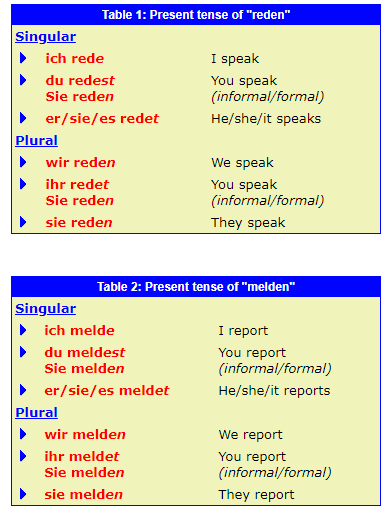In the present tense, German verbs whose infinitive stem ends in -d:
add -est and not -st in the "du" form
add -et and not -t in the "er/sie/es" form
add -et and not -t in the "ihr" form

A-E: ahnden (to avenge, to punish), aufbürden (to encumber), baden (to bathe), beenden (to end), beneiden (to envy), bilden (to form), binden (to tie), blenden (to dazzle), downloaden (to download), dulden (to tolerate), enden (to end), erkunden (to find out, to reconnoitre), ermorden (to murder), ermüden (to tire)
F-M: fahnden (to search for), sich gebärden (to conduct oneself), gefährden (to endanger), gründen (to found), kleiden (to dress), landen (to land), melden (to report), münden (to flow into, to lead)
N-S: pfänden (to impound), reden (to speak), roden (to clear), runden (to round), schaden (to damage), schmieden (to forge), schneiden (to cut), schulden (to owe), senden (to send), sieden (to boil), spenden (to donate), stranden (to run aground, to be stranded), stunden (to give someone time to pay)
T-Z: verabschieden (to say goodbye to), verfremden (to defamiliarize), vergeuden (to waste), verschwenden (to waste), verschwinden (to disappear), verwunden (to wound), vollenden (to complete), wenden (to turn), zünden (to ignite).
 英语
英语 日语
日语 韩语
韩语 法语
法语 西班牙语
西班牙语 意大利语
意大利语 阿拉伯语
阿拉伯语 葡萄牙语
葡萄牙语 越南语
越南语 俄语
俄语 芬兰语
芬兰语 泰语
泰语 丹麦语
丹麦语 对外汉语
对外汉语

